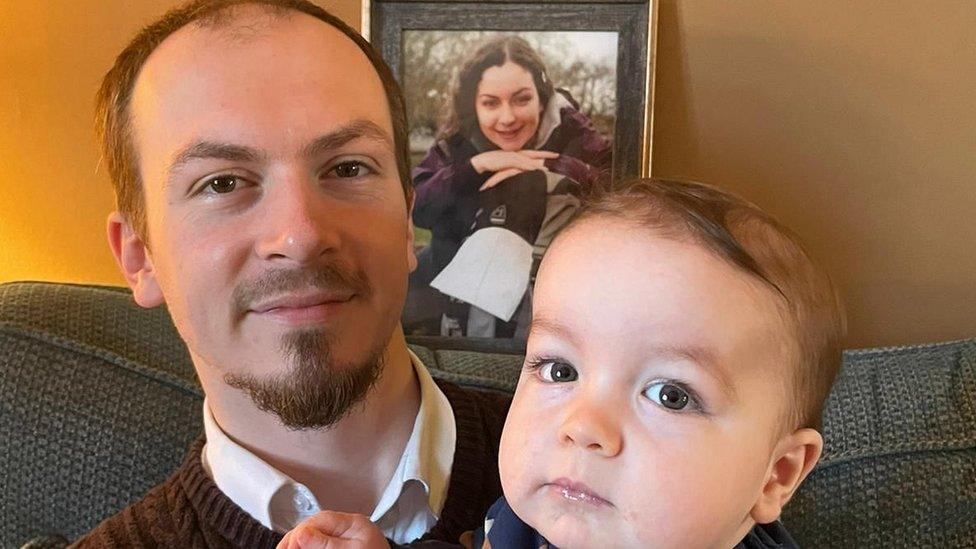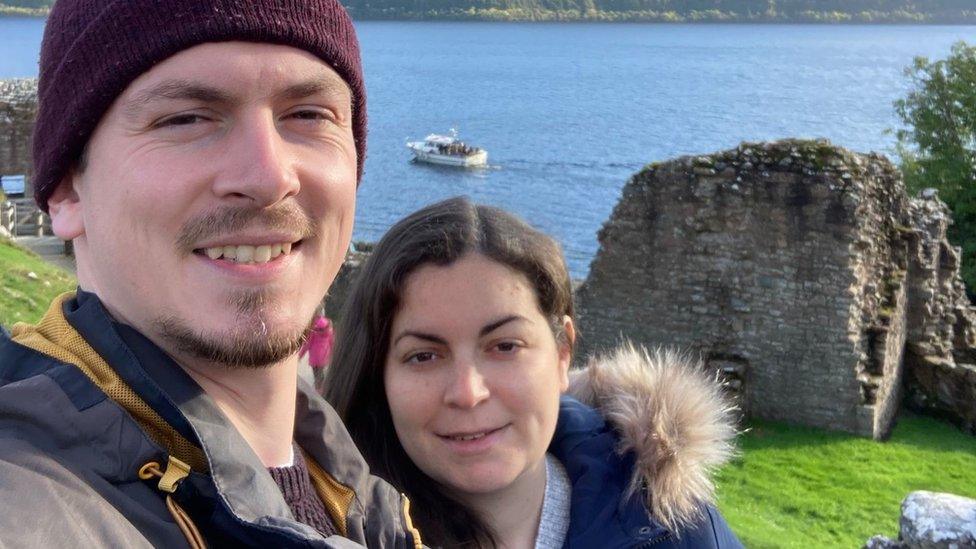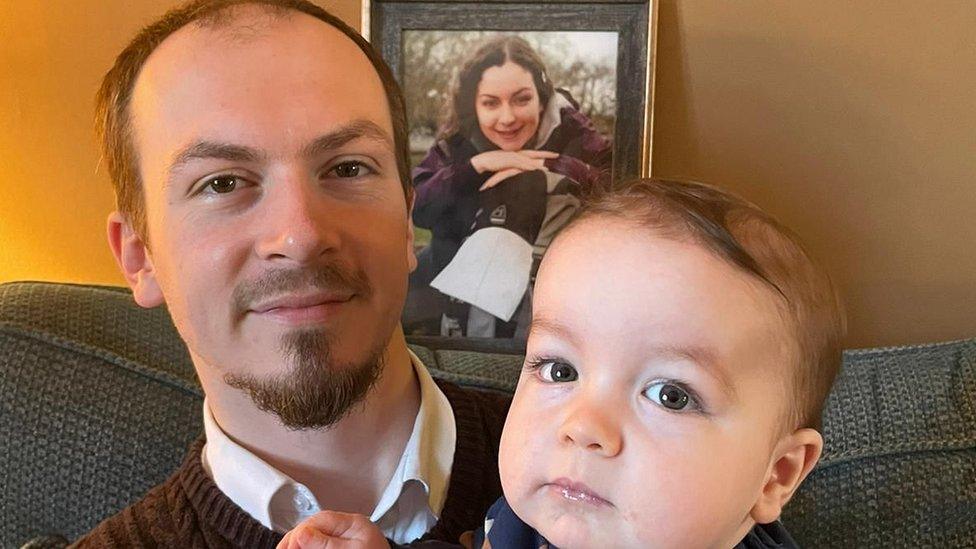Bernadette Horsey: New mother had cardiac arrest seconds after birth
- Published

Aaron Horsey with his son, Tim, and a picture of his wife Bernadette
A new mother who died in childbirth suffered a "profound, catastrophic collapse" that could not have been predicted, an inquest has heard.
Bernadette Horsey, 31, from Beeston, Nottinghamshire, died shortly after her son Tim was delivered by Caesarean section at the Royal Derby Hospital on 19 January 2022.
Her consultant anaesthetist said he was "certain" Mrs Horsey died of a amniotic fluid embolism.
The inquest is due to last three days.
Mrs Horsey's husband Aaron Horsey previously told the BBC his wife, who worked for Nottingham University Hospitals Trust, had chosen to have their baby in Derby in part due to concerns over maternity care services in Nottingham.
He said Mrs Horsey only got to glimpse her son for a matter of seconds.

Bernadette Horsey died in January 2022
Derby Coroner's Court heard Mrs Horsey went into cardiac arrest just seconds after the baby was delivered.
The alarm was raised and a team of medics tried to resuscitate her for 39 minutes, the inquest was told.
Dr Martyn Traves, who anaesthetised Mrs Horsey and was present during the operation, said there were no concerns over her health until seconds before she entered cardiac arrest.
He told the court that immediately after Tim's delivery, he went to inject Mrs Horsey's hand with oxytocin, as was routine, but he noticed her hand was in an unexpected position.
He said this was not abnormal, but he said he paused the injection when she continued to move unexpectedly.
At this point, he said her face was "extremely pale" her eyes had rolled back and her jaw was clenched.
"There was a clear and critical change in her condition, I called her name but she did not respond," he said.
"I am certain that this was an amniotic fluid embolism."
He explained the condition involves amniotic fluid from the foetus entering the blood stream, causing a reaction.
Derbyshire assistant coroner Louise Pinder asked if the delivery team could predict such a thing, or if there were any obvious signs during the procedure.
"This was a profound, catastrophic collapse... there was no way of predicting that," Dr Traves said.
He added such a reaction meant the only symptom medics could deal with at the time was to bring Mrs Horsey around from the cardiac arrest.
'Slumped towards me'
Mrs Horsey was born in Kent and worked as a biomedical scientist for the trust.
Giving evidence, her widower Aaron said his wife had gained weight, suffered from "debilitating" morning sickness plus swelling and chest pain at points throughout her pregnancy.
However, these were deemed to be normal and the couple travelled to the hospital for a planned Caesarean section on the morning of 19 January.
He told the inquest: "The screen was lowered and he [Tim] was just there. She [Mrs Horsey] said 'it's a boy'.
"It could have been 100 years we were looking at Tim. Then the screen was put back up again.
"As I turned back from the screen to look at her, I let her head down on the pillow and as soon as I took my hand out she just slumped towards me.
"I could not even process what was happening. It was just like this image does not make sense."
Mr Horsey was taken to a side room where he was informed his wife had died.
The inquest continues.

Follow BBC East Midlands on Facebook, external, on X, external, or on Instagram, external. Send your story ideas to eastmidsnews@bbc.co.uk, external.
Related topics
- Published22 February 2023

- Published21 December 2022
